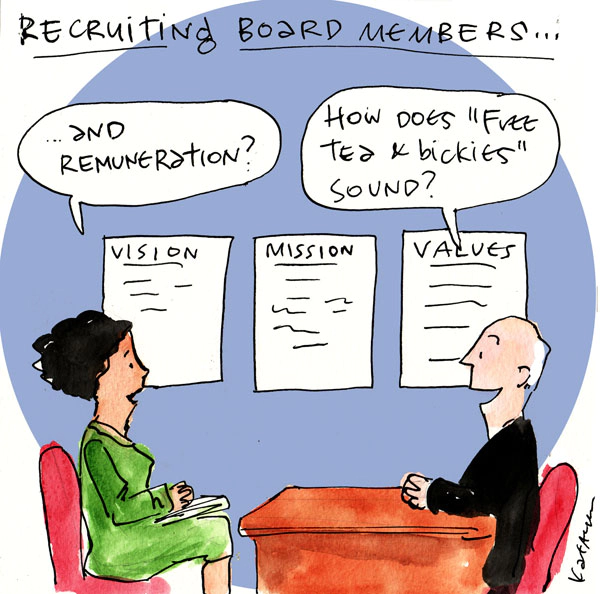legal
Political Lobbying and Your Charitable Status
Published: August 14, 2011
Read Time: 5 minutes

Almost a year to the day after the Word Investments case, the ATO has suffered another loss in the High Court of Australia. This time, in the case of Aid/Watch Incorporated v Commissioner of Taxation, the High Court found that Aid/Watch is a charitable institution despite the fact that its activities are mainly directed at influencing government decisions i.e., lobbying.
The High Court’s decision is welcome news to the many not for profit organisations that lobby government as a means of achieving their charitable objectives.
Brief History
On 14 July 2000, Aid/Watch was endorsed as a charitable institution and, as such, was exempt from income tax, FBT and GST. However, some 6 years later, on 2 October 2006, the ATO revoked their endorsement.
The issue then took a tortuous legal path:
-
Aid/Watch objected to that revocation but it was disallowed by the ATO;
-
Aid/Watch appealed to the Administrative Appeals Tribunal
- The AAT found that Aid/Watch was a charitable institution within the meaning of the relevant tax legislation.
-
The ATO then appealed to the Full Court of the Federal Court
- That court found that Aid/Watch’s main objective was to influence government and therefore, the court concluded that even though Aid/Watch was ultimately concerned with relieving poverty, its main activity, political lobbying, could not make it a charitable institution.
-
Aid/Watch then appealed that decision to the High Court of Australia.
The Law
Under Australian tax legislation, “charitable institutions” are entitled to be endorsed as exempt from various forms of taxation including, income tax, GST and FBT. However, the legislation does not contain a definition of the term “charitable institution” and decision makers must rely on the common law as found in court decisions when determining whether any given organisation is charitable.
There are four categories of purposes which are accepted by the common law as being charitable. They are known as the four heads of charity, namely:
- The relief of poverty;
- The advancement of education;
- The advancement of religion; and
- Other purposes beneficial to the community.
Leading up to the Aid/Watch case it was generally accepted that under the common law, an organisation could never be regarded as charitable if its principal purpose was advocating for political change or a political point of view or attempting to change the law or government policy.
However, if an organisation’s principal purposes were charitable, the fact that it engaged in political or lobbying activities that were incidental to its main charitable purposes did not disqualify it from being charitable.
Aid/Watch
The primary activities of Aid/Watch are “associated with the delivery of foreign aid”. However, Aid/Watch itself does not deliver aid. As its name suggests, its objectives state that it “monitors, researches, campaigns and undertakes activities” relating to foreign aid and investment programs.
It achieves these objects through research, publicly releasing the results of that research, campaigning for change in the way aid is delivered and public events and media releases that are designed to influence the way aid programs are administered and to ensure that aid is delivered in an environmentally effective manner.
The Federal Court identified that by seeking to improve the effectiveness of foreign aid, Aid/Watch’s activities were directed to the relief of poverty but found that this ultimate concern to relieve poverty does not diminish its dominant political purpose to influence government.
The High Court Decision
The majority of the High court disagreed with the decision of the Federal Court and found that:
-
‘…the generation by lawful means of public debate….concerning the efficiency of foreign aid directed to the relief of poverty, itself is a purpose beneficial to the community within the fourth head” of charity being a purpose beneficial to the community;.
-
There is no general rule in Australia that excludes political objects from charitable purposes.
-
It is possible for a charitable institution to have objects which are political in nature if its activities result in outcomes which contribute to public welfare.
-
It may also be possible for organisations with objects which otherwise fall within one or more of the four heads of charity to be denied charitable status because the “ends and means” involved in carrying out those objects do not contribute to public welfare.
What Does it all Mean?
The absence of a legislative definition of “charity” creates a degree of uncertainty for the not for profit sector. This is unacceptable given the significant contribution it makes to the Australian economy. It also means that the ATO has to rely on a common law meaning of the term which has its origins in a statute passed in 1601 and an English case decided in 1891 (Pemsel’s Case).
It is this uncertainty and lack of statutory guidance which has resulted in two cases involving charitable institutions coming before the High Court in as many years.
These difficulties have been widely acknowledged and a number of enquiries, including the Inquiry into the Definition of Charities and Related Organisations (June 2001) and Contribution of the Not for Profit Sector (Productivity Commission; February 2010), have recommended that a statutory definition of “charitable” be introduced.
The ATO is yet to publish its Decision Impact Statement on how it sees this decision influencing future endorsement applications and reviews. But the decision is welcome news for not for profit organisations engaged in lobbying for change or seeking to influence government policy. This is particularly the case for not for profit peak bodies.
However, the sector is looking to the Not-for-Profit Reform Council and/or the proposed national not-for-profit regulator to bring the long promised legislative reforms that will allow the sector to continue to meet the needs of the Australian community.
Share this Article
Recommended Reading
Recommended Viewing
Author
-
Partner
HopgoodGanim Lawyers
- About
-
Joanne has an extensive practice across the not-for-profit sector particularly in the aged care and retirement village segment. Joanne is experienced in advising Boards on a range of issues including reviewing and improving constitutions, organisational restructuring, converting from one legal structure to another, mergers and acquisitions, tax endorsements, legal compliance and risk management. Her work is a reflection of a personal desire to work with the community and philanthropic sectors as a way of improving their performance but also putting some meaning into professional life.
Found this article useful or informative?
Join 5,000+ not-for-profit & for-purpose directors receiving the latest insights on governance and leadership.
Receive a free e-book on improving your board decisions when you subscribe.
Unsubscribe anytime. We care about your privacy - read our Privacy Policy .







